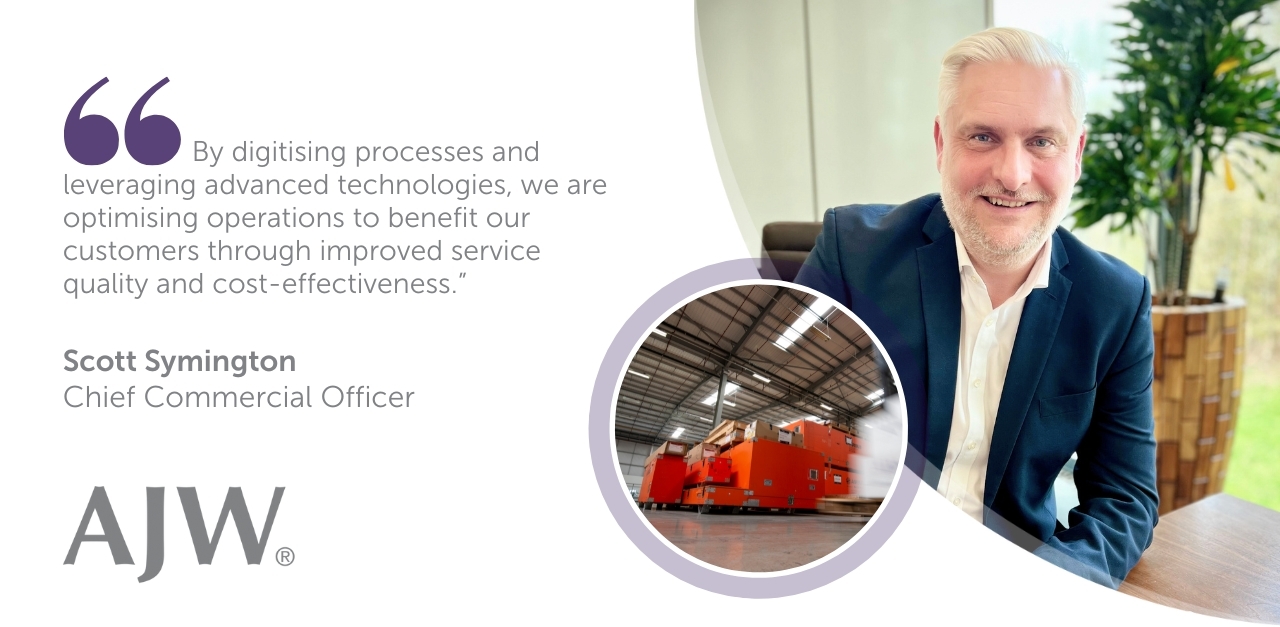

24/7 AOG Critical Response
Hotline![]() UK +44 1403 798888US +1 877 780 2008
UK +44 1403 798888US +1 877 780 2008
Our award winning global AOG service is manned 24 hours a day, 365 days a year.
Please call +44 1403 798888 or email aog@ajw-group.com.

18 Oct 2024

Airlines depend on the aviation supply chain to ensure their aircraft are on the ground for as short a time as possible, but the parts supply chain has been under stress recently. Bernie Baldwin reports on the ways in which obstacles are overcome.
Key to ensuring that AOG costs are kept down is the supply of parts and components needed to complete the repair. If the right parts aren’t in the right place at the right time, turnaround times lengthen, and the aircraft is not in the air generating revenue.
Reporting for Yocova, Bernie Baldwin speaks to Chief Commercial Officer of AJW Group, Scott Symington, about how the Group is overcoming supply chain challenges to keep AOG costs down for its customers.
Since the Covid pandemic, global supply chains have often been below their most effective, says Symington.
“Prolonged logistic lead times, exacerbated by pent-up demand for travel and increasing passenger numbers for airlines, have resulted in inefficiencies in inventory forecasting and demand planning,” he states. “This has impacted the suppliers’ ability to meet customers’ needs effectively, especially with the additional challenges brought about by Brexit, with tariffs and increased border checks putting further strain on the supply chain.”
How are businesses addressing these challenges, enquires Baldwin?
“MROs such as AJW are adopting strategies to enhance regionalisation in their sourcing approach,” Symington notes. “OEM centres are collaborating globally to mitigate capacity constraints and understand supply chain vulnerabilities, aiming to improve resilience and responsiveness. However, OEMs and suppliers face hurdles in their performance environment, including shop processing time constraints and the high cost of raw materials and labour.”
In response to these dynamics, AJW is diversifying its supply chain by incorporating third-party suppliers alongside OEM sources. Symington explains how AJW Group employs a sophisticated pooling approach, strategically positioning inventory around the globe to ensure easy access and distribution to its regional customers.

One of the biggest challenges is managing an airline’s inventory levels and its access to that inventory. Baldwin asks how AJW Group navigates this issue.
“Our global sales and MRO management teams have extensive experience and a deep understanding of the market,” explains Symington. “This enables them to make informed decisions and deploy strategic solutions that are tailored to the needs of our customers through programmes such as our Power by the Hour (PBH)-type offering,” he adds.
AJW Group’s Chief Commercial Officer then moves to the topic of digital advancements, stating his belief that IT innovations, particularly those leveraging AI, are driving significant advancements in MRO operations, leading to cost reductions and improved budgeting capabilities for parts users.
“Predictive maintenance, powered by AI algorithms, stands out as a transformative technology, enabling airlines to anticipate maintenance needs by analysing datasets from aircraft systems,” he contends.
“Augmented reality (AR) technology is another key innovation impacting the aviation MRO sector,” Symington observes. “By overlaying digital information onto physical aircraft components, AR facilitates maintenance tasks and provides real-time guidance to technicians. This enhances efficiency and accuracy in maintenance procedures, contributing to cost savings for airlines.”
The CCO also points out that digital solutions, like AI, automation, and data analytics, are streamlining MRO processes and optimising the use of resources. “Automated fulfilment solutions, for instance, are revolutionising inventory management and procurement, leading to cost reductions associated with inventory holding and procurement inefficiencies,” he says.
“Additionally, IoT (Internet of Things) tracking and smart sensors are providing real-time visibility into the location and condition of component parts throughout the MRO process. By detecting deviations from planned routes and monitoring environmental conditions, these technologies enable timely interventions to prevent damage or loss, especially for time-critical or high-value shipments,” he shares.
Symington concludes by declaring that “AJW Group is embracing digital transformation across all operational aspects, from customer-facing sales systems to back-end enterprise resource planning systems (ERPs) and operational tools. By digitising processes and leveraging advanced technologies, we are optimising operations, reducing costs, all benefiting our customers — the operators — through improved service quality and cost-effectiveness.”